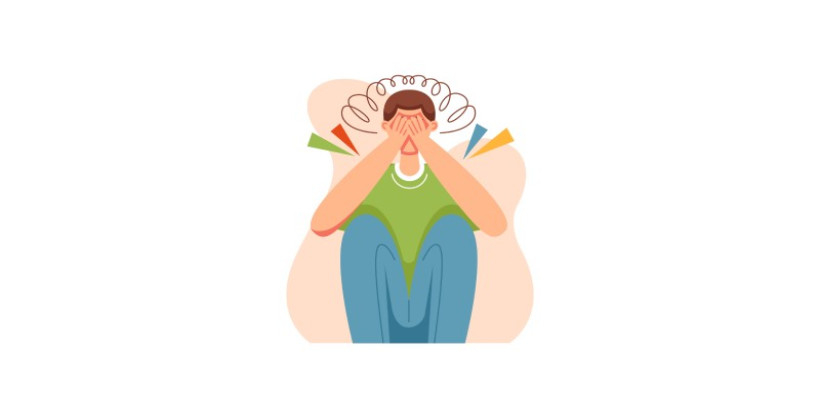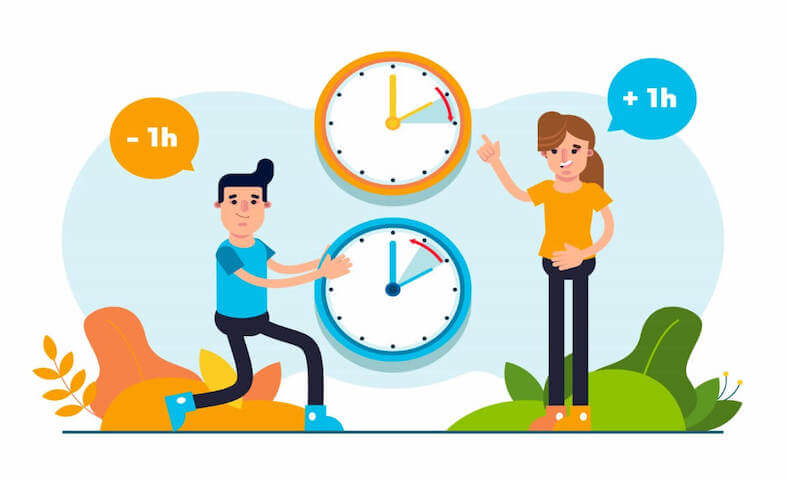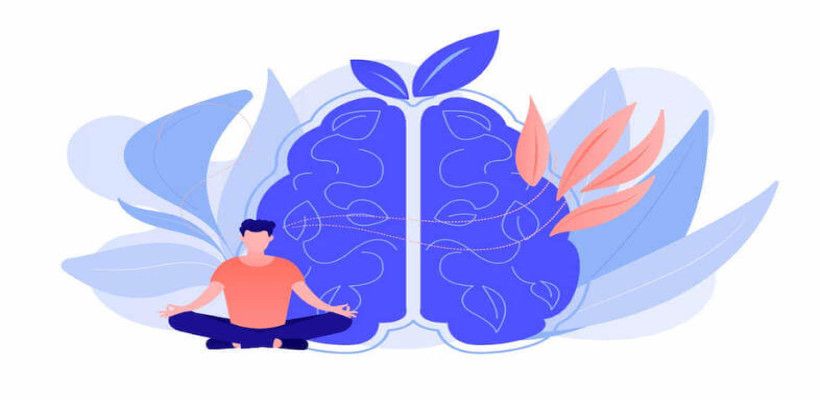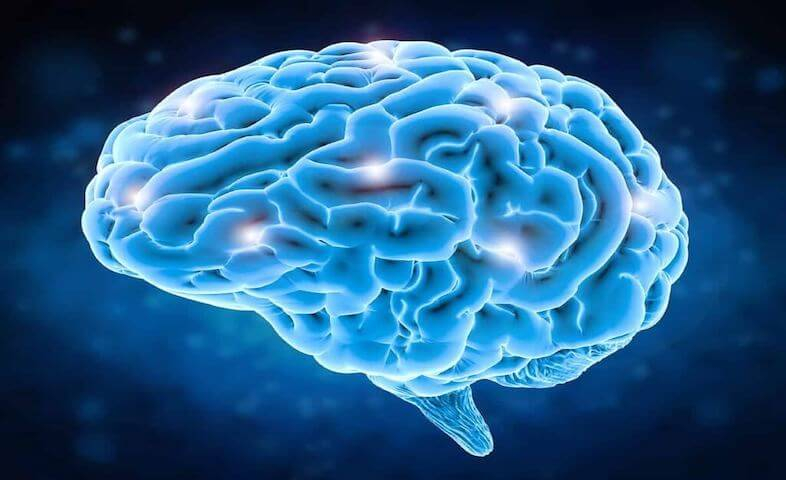When you think about anxiety, you may imagine the constant tossing and turning of a restless night, fear of prospective future occurrences, pandemic-related overload, or full-blown panic attacks. Even if you have not been diagnosed with an anxiety condition, you have probably experienced anxious symptoms at some time in your life. In these instances, you may experience nausea, a racing heartbeat, heavy perspiration, chest tightness, strain in your jaw/neck/shoulders, or troubling thoughts as you prepare for the worst-case scenario. But does anxiety make you tired?
You may feel weary after experiencing these symptoms. The experience might be anywhere on the tiredness scale, from feeling like you just ran a marathon and need to sleep for two days to simply being tired and needing a little nap to recover.
Here are seven ways anxiety drains your energy and how to replenish it.
1. Stress Hormone Overload
Anxiety may exhaust you by overwhelming your body with stress chemicals. The "fight or flight" reaction is an important link between anxiety and exhaustion. In reality, this process consists of three stages: alarm, resistance, and exhaustion. Anxiety causes our biological systems to go on high alert. This is a normal, automatic reflex established in the human brain to ensure life.
When humans faced the genuine, impending prospect of being attacked by a predator, our bodies reacted instinctively. Such hazards are uncommon now, yet our brains continue to behave in the same manner they did thousands of years ago.
Hormones and chemicals that rush our bodies to prepare us for safety can impact and be affected by several physiological systems, and this interplay adds to fatigue. The two most significant hormones to discuss here are adrenaline and cortisol. In preparation for running, adrenaline is released, tensing the muscles and raising the heart rate and blood pressure. Cortisol is produced later in the stress reaction, which improves the brain's glucose metabolism. This is one of our primary fuel sources, therefore it's no surprise that this adds to weariness.
Regular practice of yoga, breathwork, meditation, and/or cardiovascular exercise can help to control baseline levels of these stress chemicals. When you've perfected these routines for stress alleviation, it's easy to rely on them when you're feeling calm.
2. Elevated Blood Sugar Levels
Fatigue is one of the most prevalent symptoms of hyperglycemia (high blood sugar) and has been linked to anxiety in diabetes patients. Many persons with hyperglycemia report feeling exhausted all the time, regardless of the amount or quality of their sleep, diet, or activity.
Although this link is more common and has longer-lasting consequences in diabetics, it also happens in nondiabetics exposed to psychological stress. In reality, for everyone, the natural stress reaction raises blood pressure, heart rate, and cortisol levels, all of which raise blood sugar levels. This indicates that worry generates a double punch of weariness due to blood sugar variations.
Instead of grabbing for comfort foods like chocolate during stressful times, go for a relaxing walk around the block. Gentle activity is an excellent stress reliever that also helps to control blood sugar.
3. Negative Mindset
Anxiety can also produce fatigue due to recurrent negative thinking (RNT), a frequent symptom of anxiety. RNT is characterized by constant thoughts, including rumination (dwelling on sad or unpleasant memories from the past) and concern. Some studies believe that a long-term habit of RNT might impair the brain's ability to think, reason, and make memories. While the brain is busy utilizing its energy supplies to feed negative thinking patterns, the energy available for other, more productive activities is limited.
Negative thoughts can also interrupt or inhibit good sleep patterns, causing our minds to race at night and deplete our energy throughout the day.
Reduce these habits by focusing on your sensations rather than your nervous thoughts. Instead than dwelling on "what if," consider what you can accomplish right now. What activity can you do for five minutes (or longer) that gives you joy? What are you grateful for, regardless of what is happening around you?
4. Digestive Issues
People frequently suffer from both digestive and mental health difficulties at the same time. This shows a close relationship between the central nervous system and the gastrointestinal (GI) tract, known as the gut-brain axis. Simply put, what happens in our digestive tract (and as a result of what we consume) influences the brain, and vice versa.
The gut microbiota is a diverse collection of gastrointestinal tract bacteria. When its equilibrium is disrupted, the body might develop disorders that damage the gut-brain-endocrine system. For begin, the endocrine system creates and regulates adrenaline levels. The generation of feel-good chemicals by gut flora also plays a role in this interaction.
Gut microorganisms also include GABA receptors. GABA is a natural brain relaxant that helps us feel good by assisting the body in unwinding following a stress-induced neurotransmitter release (for example, cortisol and adrenaline). Low GABA activity causes anxiety, sadness, sleeplessness, and mood disorders. These are only a few indicators of how gut bacteria affects behavior. All of these factors lead to feeling physically and psychologically exhausted.
You can reduce the symptoms of sadness and anxiety by balancing your gut flora with probiotic-rich fermented foods. Yogurt with living cultures, sauerkraut, kombucha, kefir, kimchi, miso soup, and tempeh are excellent choices for your diet.
5. Depression
Anxiety and sadness frequently go hand in hand. According to research, there is a complicated association between depression and low serotonin levels—a vital neurotransmitter for regulating mood and emotions of wellness and enjoyment. Anxiety is a direct result of serotonin deprivation. Serotonin promotes good sleep, mood, and digestion.
Serotonin is nearly entirely synthesized in the stomach, accounting for around 90% of total production. However, a minor amount is also created in the hypothalamus, a part of the brain responsible for conveying energy balancing signals. This little cone-shaped structure receives and transfers vagus nerve impulses from the gastrointestinal system. It plays a critical role in stress response, sleep regulation, and circadian rhythm formation. It detects and responds to a wide range of circulating hormones and minerals, which directly impact our mood and energy levels.
Dopamine, another mood-enhancing neurochemical, is reduced in depression. It produces emotions of alertness and wakefulness and, when the body is functioning correctly, is released in greater quantities in the morning (allowing for daytime energy) and in less amounts at night (preparing for healthy sleep). Stress is one cause that can deplete dopamine, resulting in sadness, sleep disturbances, and exhaustion.
According to studies, increasing dietary consumption of tyrosine and phenylalanine can boost dopamine levels in the brain. Both of these amino acids occur naturally in protein-rich foods such as turkey, beef, eggs, dairy, soy, peas, lentils, and beans.
6. Breathing Problems
Breathlessness and anxiety are strongly related, and this is one way anxiety may make you weary. Anxiety can produce shallow breathing, resulting in shortness of breath, and feeling breathless can worsen anxiety. It's a vicious loop that frequently causes folks to take fast, shallow breaths into their upper chest and shoulders.
This method of breathing reduces oxygen intake and usefulness. Despite accounting for only 2% of the body, our brains require 20% of the body's oxygen supply. Oxygen provides energy for both mental and physical activity. When breathing habits disrupt optimal oxygen levels, it can result in significant weariness.
Focused breathing techniques can help break the cycle of worry and weariness. It's critical to do this on a regular basis even when you're not feeling anxious or stressed, since it will help you be prepared if a round of breathless anxiety strikes suddenly.
There are various types of breathing exercises. There is a simple one to attempt called "Resonant Breathing." Simply inhale deeply through your nose while counting to five, and then exhale for five. Repeat for many minutes. It's beneficial to pay attention to any stiffness and intentionally relax your neck, shoulders, and jaw in particular.
7. Sleep Issues
The majority of the things we've just examined are inextricably linked to sleep disorders, which is typically why worry causes fatigue. However, it is crucial to remember that this is not necessarily a straight cause-and-effect relationship. Much of it is cyclical. If we don't get enough sleep, we are more likely to produce too much cortisol, have high blood pressure and blood sugar levels, have depressed mood and mentality issues, and have appetite/craving hormone dysregulation that affects our digestive health.
Sleep is, without a doubt, the most effective remedy to feeling exhausted due to anxiety. However, many of these factors, especially worry, contribute to poor sleep quality. We can boost our energy levels by addressing the issues raised above, as well as taking a proactive approach to our sleep health.
Getting outside in the morning is a simple activity that can help reset your circadian clock and promote good sleep habits. Sunlight exposure in the early hours of the day influences melatonin synthesis, making us feel tired at night.
You Don’t Have to Live Your Life Anxious and Exhausted
Extreme stressors, such as driving in heavy traffic or nerve-racking circumstances like public speaking, can quickly trigger an anxiety reaction. Even "normal" everyday pressures, such as feeling overburdened by job and family commitments, can lead to anxious feelings over time.
The way our bodies respond to stress and anxiety has a complicated impact on many of their processes. When we examine the relationships between these processes, we can understand how each component contributes to weariness. By treating each aspect individually, we may make easy lifestyle modifications that alleviate worry and the fatigue it causes.








Commnets 0